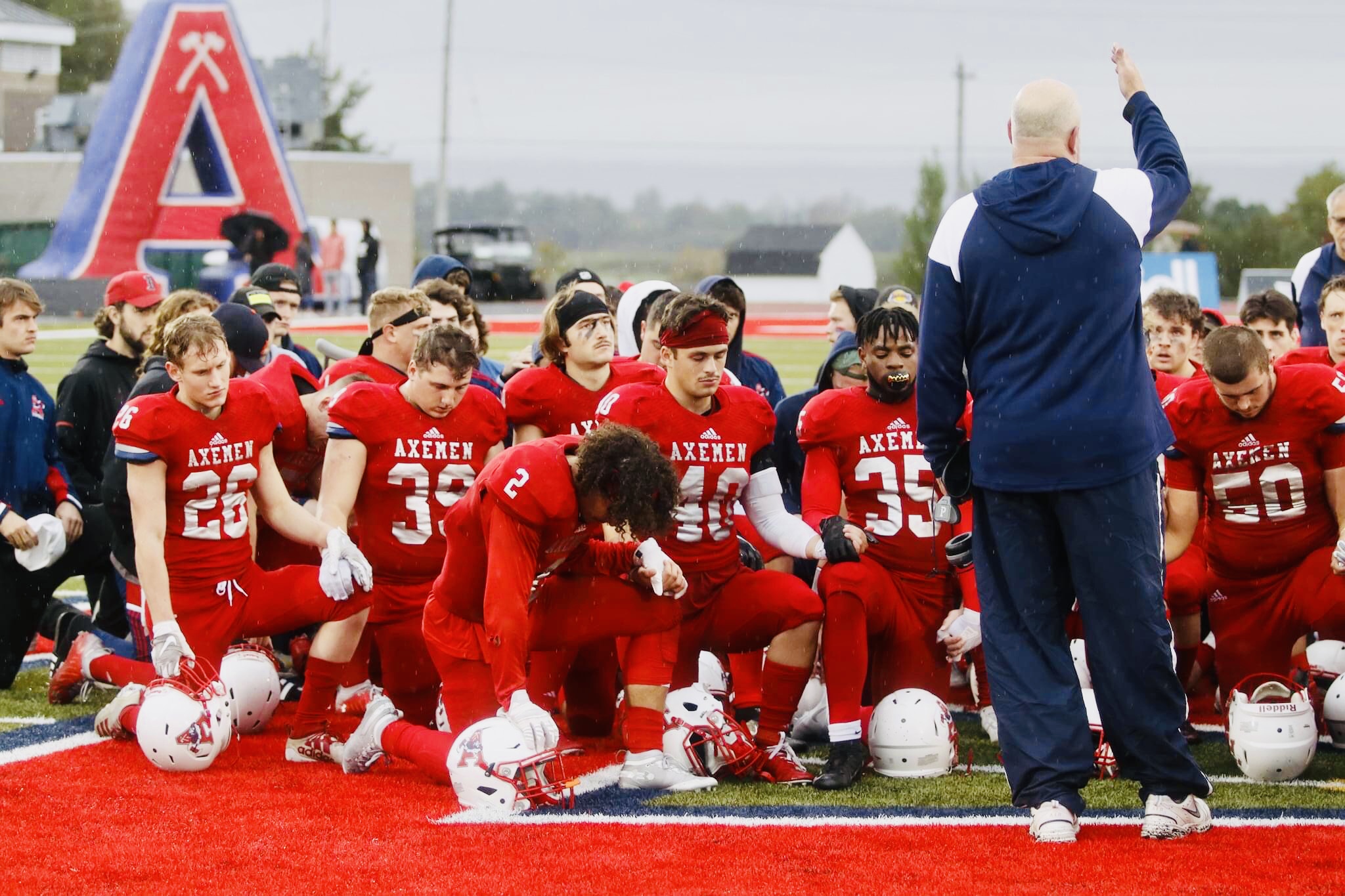How does one characterize the game of football’s humanity?
It could be chalked up to the brotherly chest bumps between teammates every whistle. That observation would hardly cause a rift. Understood by the sidelines, beyond the stands and through neighborhood bars as a hallmark celebration for how it embodies the game’s “pigskin and pads” devices.
The sport with the largest number of rostered participants on Earth is a primary vessel by which a small college town is convened. Acadia Athletics made an Instagram post earlier this year that lauded the additions its varsity football head coach has been making for decades to his sport across Nova Scotia. The caption should have caught the eyes of Axemen, not only for its generous nod but for what can be further noted about his legacy to date. Binding his contribution to provincial borders misses the mark, frankly, albeit done in an accrediting spirit. At Raymond Field, his endeavors are locally harnessed, nationwide, professionally pedigreed, and medalled gold in Mexico – due to top-down progressions. They transcend the sport entirely in lessons of brotherhood and community, as evident in the coordinated water stations at CIBC Run for the Cure, door-to-door canvassing for the Alzheimer’s Society of Nova Scotia, and helping move students’ belongings into campus living quarters each September.
The senior Axemen of this fall were spotlit at three o’clock on Saturday, October 21st. Football alumni, who may have pretended that weekend was their absent homecoming, came in droves. Months or years separated the familiar faces reassembled. While leaning over the railings dividing them from the Axetion unfolded, Axetion they once spurred, haphazard catch-up banter made about the months preceding slowly organized into that about events from the night before.
To understand the humanity of football, let us fill the shoes of a local team’s head coach during the pandemic. (At Raymond Field, these may be a pair of white Nike Airs). From seventeen years spent instilling resilience in his players to the public obligation of sending his brawn home with the sniffles, a one-eighty leadership style was inflicted upon the Axemen the moment the pandemic began hindering our communities’ way of life.
We can ballpark the blanketed responsibility at one hundred players and volunteer assistants, as well as separate hierarchies of athletic therapy units and recruiting personnel constrained by socially distant measures.
Since the pandemic’s onset, Axemen leadership understood that more than football was at stake. In a final sit-down with players, before meetings were resorted to Zoom, it was coined “If you think I have ever hidden a stack of sticky notes in my office desk drawer as a pandemic response plan, that simply is not the case.” Several of the players whose names were called this October were in uniform on the former side of suspended play four seasons, or a pandemic lifecycle, ago.
Prioritized in these times were the ever-altered educational trajectories of student-athletes, as evident by the record number of Academic All-Canadians produced by Acadia Athletics for the year regulation play was reintroduced.
On that Saturday, by the fourth quarter’s end, beyond the kneeling and clasped hands of
their final huddle, the sun, shrouded behind gray overcast, set somewhere along Annapolis verdant hills. The twilight hour melancholized Raymond Field with the memories of another year wrought; and the future, as unpredictable as these last three years have been.
If you aren’t prepared to serve, forget leading. — Coach Cummins, Acadia Axemen Football
